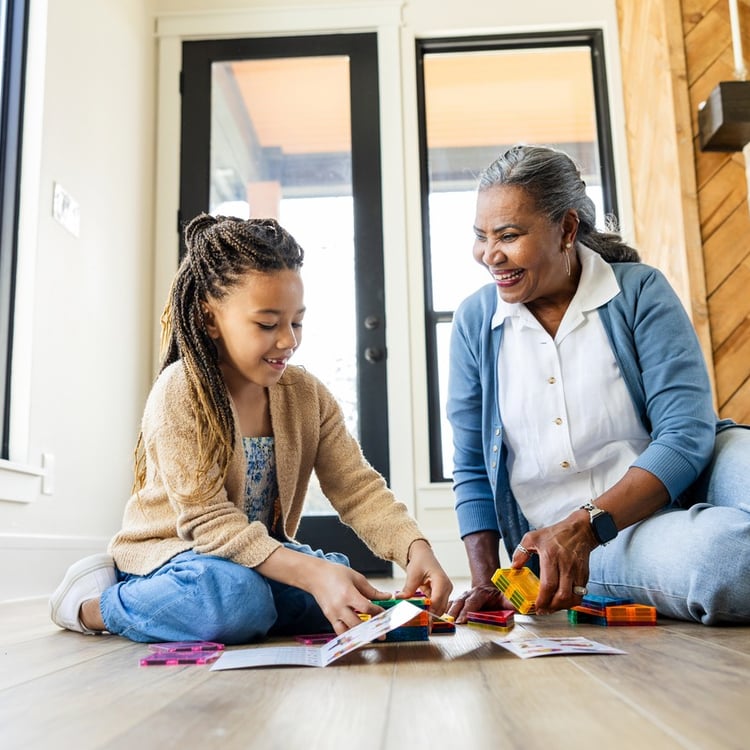Building confidence in children is foundational to their happiness, resilience, and success. Confident kids are better equipped to face challenges, express themselves, and make healthy decisions. As parents, teachers, and caregivers, we play a vital role in cultivating their self-worth. Below, we outline 25 actionable, research-backed strategies to help kids develop confidence that lasts a lifetime.
Table of Contents
1. Show Unconditional Love and Support
Let your children know they are loved no matter what. By reinforcing that your affection doesn’t depend on their achievements or mistakes, you help them feel secure in who they are. This unconditional support gives kids a solid foundation to take risks and learn from setbacks without fear of losing your love or approval.
2. Model Positive Self-Talk
Children often mirror our attitudes and words. When they see you talking positively about yourself, they’re more likely to adopt the same approach. Try using encouraging language when discussing challenges and setbacks. For example, instead of saying, “I’m terrible at this,” try, “I’m getting better with each try!” Show them how to replace negative thoughts with positive affirmations.
3. Use Their Name in Encouraging Conversations
Addressing kids by their name during positive exchanges helps reinforce their sense of identity and value. Personalizing conversations by saying, “Great job on that project, Jamie!” or “Thank you for helping today, Sarah!” can have a lasting impact on how they perceive themselves.
4. Create Age-Appropriate Responsibilities
Assigning children tasks that are challenging yet achievable gives them a sense of competence. Whether it’s setting the table, feeding a pet, or helping with a small home repair, giving them responsibilities shows trust in their abilities and fosters confidence. Use encouraging phrases like, “You did a fantastic job on that!” to reinforce their effort.
5. Engage in Child-Led Play
Joining in playtime led by the child helps build confidence by demonstrating that you value their interests. Let them choose the activity and lead the way—whether it’s an imaginative game, a puzzle, or a sport. By allowing them to direct the play, you’re showing trust in their ideas and abilities, which bolsters self-confidence.
6. Emphasize Effort Over Perfection
Praise children for their persistence rather than only focusing on successful outcomes. For instance, instead of saying, “You’re so smart,” say, “I’m proud of how hard you worked on this!” Emphasizing effort encourages a growth mindset, where kids learn that their hard work, not just inherent talent, leads to success.
7. Allow Room for Failure and Growth
Let children experience failure in a safe, supportive environment. Emphasize that making mistakes is part of learning, and help them see setbacks as stepping stones. For example, if they don’t succeed at a sports game or a school project, encourage them to try again and remind them that resilience is built through persistence.
8. Celebrate Achievements (Big and Small)
Make a point of celebrating both major milestones and small achievements to reinforce a sense of accomplishment. Create a “Celebration Wall” at home where you display school certificates, art projects, or pictures of moments when they tried something new. Celebrating these moments reminds them of their abilities and efforts.
9. Encourage Them to Set and Pursue Goals
Help kids set realistic, age-appropriate goals that align with their interests. Guide them in breaking down larger goals into smaller, manageable steps. By setting goals and achieving them, children gain a sense of purpose and learn valuable planning and organizational skills.
10. Let Them See Positive Role Models
Kids benefit from having confident, positive role models. Share stories about people who persevered despite challenges, whether it’s a famous athlete, scientist, or someone they know personally. Having role models can inspire children to develop confidence and resilience in the face of obstacles.
11. Focus on Strengths Rather Than Weaknesses
Take time to identify and encourage your child’s unique strengths. Recognize and support activities they naturally excel at, whether it’s drawing, sports, or storytelling. Focusing on strengths, rather than only trying to improve weaknesses, helps children build a positive self-image and confidence in their abilities.
12. Help Them Find Their Passions
Encourage children to explore a variety of activities to discover their interests and talents. When they find something they’re passionate about, whether it’s playing an instrument, writing, or coding, their confidence naturally grows as they develop skills in areas they enjoy.
13. Reinforce the Value of Kindness and Empathy
Teaching children to be kind and empathetic toward others can enhance their self-esteem. When they experience the positive impact of kindness—through compliments, helping others, or sharing—they feel valued and confident in their ability to make a difference.
14. Use Specific and Honest Praise
Be genuine and specific in your praise. Instead of saying, “Good job!” try, “I’m proud of the way you solved that math problem; you really took your time to figure it out.” This approach reinforces their effort and honesty in accomplishments, helping them trust your praise and gain confidence.
15. Resist Comparisons to Others
Avoid comparing your child to siblings, classmates, or friends. Comparison can lead to feelings of inadequacy and resentment. Instead, focus on their unique journey and personal growth. Remind them that everyone develops at their own pace, and celebrate their individual progress.
16. Make Quality Time a Priority
Spending uninterrupted, quality time with your child shows them they are valuable and worthy of your attention. Whether it’s reading a book together, playing a game, or simply talking, this time helps reinforce their sense of worth and builds a strong foundation for confidence.
17. Encourage Self-Reflection on Achievements
At the end of the day or week, invite your child to reflect on what they accomplished. Ask them to share one thing they feel proud of or a challenge they overcame. This helps them recognize their achievements and understand that even small successes contribute to their confidence.
18. Encourage Friendships with Positive, Uplifting Peers
Guide your child toward friendships with peers who are supportive, kind, and encouraging. Positive friendships help children feel accepted and confident in being themselves. Encourage them to seek out friends who make them feel good about who they are, and to offer the same kindness in return.
19. Create Opportunities for New Experiences
Trying new activities helps children learn they can handle unfamiliar situations, which is crucial for confidence. Whether it’s a new sport, art form, or a hobby like gardening, give them chances to explore. Experiencing these challenges reinforces their sense of capability and adaptability.
20. Foster a “Can-Do” Attitude
Instill a mindset of “I can try” rather than “I can’t.” When they express doubts or fears about a challenge, encourage them to reframe their thinking with phrases like, “I’ll give it a try” or “I’ll do my best.” This approach empowers them to take on tasks with a positive outlook, knowing that effort is more important than perfection.
21. Help Them Develop Problem-Solving Skills
Teach children how to approach problems methodically. Instead of immediately stepping in to help, guide them to break down the issue, brainstorm possible solutions, and try one step at a time. Problem-solving boosts confidence by showing them they have the tools to tackle challenges independently.
22. Acknowledge and Validate Their Feelings
Help kids understand that it’s okay to experience a range of emotions, whether positive or negative. Validating their feelings—without judgment—teaches them emotional resilience and self-acceptance. Reassure them that emotions are normal and that they can express and manage them healthily.
23. Avoid Criticizing Their Efforts or Abilities
When kids make mistakes, offer constructive guidance rather than criticism. Avoid phrases like, “That was wrong” or “You always mess up,” which can be damaging to their confidence. Instead, provide supportive feedback that focuses on what they can improve, with phrases like, “You’re making progress; let’s try it this way next time.”
24. Celebrate Acts of Kindness and Generosity
Highlight moments when your child shows kindness to others, whether it’s sharing with a sibling or helping a friend. Acknowledging these behaviors reinforces the idea that their actions positively impact others and boosts their self-worth, as they see themselves as caring and capable individuals.
25. Reinforce the Importance of Patience and Persistence
Teach children that some skills take time to develop and that patience is a crucial part of success. Encourage them to keep going, even when results aren’t immediate. When they learn to embrace persistence, they build resilience and confidence in their ability to reach their goals over time.
Conclusion: Empowering Confidence for a Bright Future
Raising a confident child involves more than praise—it’s about guiding them to understand their value, respect their abilities, and develop resilience. These strategies create an environment where kids feel supported, capable, and encouraged to explore their potential without fear. By implementing these methods, parents and caregivers can nurture lasting confidence in their children, giving them the tools they need to thrive both now and in the future.
Confidence is a gift that grows through practice, support, and positive reinforcement. Start incorporating these steps today, and watch as your child flourishes into a self-assured individual ready to take on the world.
At CodaKid, we’re here to support your child’s journey toward confidence and creativity through engaging coding courses designed just for kids. Start building their future today—one skill at a time!

















